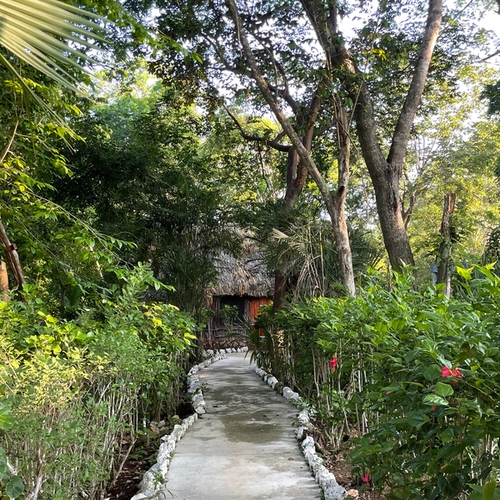April 23, 2024
The Institute for Advanced Study at the University of Minnesota is pleased to announce that we have received a grant of over $226,000 from the Consortium of Humanities Centers and Institutes to lead a global gathering of scholars, community leaders, and partners that will explore how Indigenous communities creatively respond to the cascading effects of mega-development projects and mass tourism—such as neglect of local needs, dispossession and displacement, destruction of local ecosystems, and other consequences—at various sites around the world.
The three-year interdisciplinary institute, titled “Indigenous Mobilities, Tourism, and Racial Capitalism,” is a partnership involving three university-based centers: The Institute for Advanced Study at the University of Minnesota, The Unidad de Proyectos Sociales (Center for Social Projects) at the Universidad Autónoma de Yucatán and the Humanities Research Centre at Australian National University. A pre-institute meeting is scheduled for 2025 in Canberra at the campus of Australian National University. The main institute meeting in January 2026 will be held at Universidad Autónoma de Yucatán in Mérida, Mexico as well as other locations in Yucatán and Quintana Roo and will include collaborators from all three participating centers as well as up to 20 funded interdisciplinary scholars, with special focus on early career and emerging scholars, as well as community partners. A post-institute meeting will be hosted by the IAS at the University of Minnesota Twin Cities in Spring 2026.
This institute will center Indigenous experiences with tourism economies and racial capitalism. Participants will critically engage with the humanistic dimensions of tourism and consider the social, cultural, political, and ecological ramifications of this type of megadevelopment projects. At the main institute, participants will see first hand the effects of the Maya Train—which began operating in December 2023 and will soon carry as many as three million tourists to sites across the Mexican states of Quintana Roo, Yucatán, Campeche, and Chiapas. Local Indigenous and non-Indigenous scholars, community leaders, and activists will lead a variety of panels and workshops; other sessions will allow for a global dialogue on Indigenous cultural practices and activism.
Understanding how megadevelopment projects, like the Maya Train, transform Indigenous social relations and cultural heritage is urgent because Indigenous communities do not often have a voice among the government organizations organizing and advocating for their development. Indigenous communities worldwide are grappling with similar challenges and will also join the discussion at institute gatherings.
Being able to facilitate these global conversations is an essential part of our work at the Institute for Advanced Study, as well as the University of Minnesota. This work is central to our commitment to Indigenous Studies and developing meaningful global partnerships. We are excited to host important conversations about the ethics and politics of megadevelopment, tourism, and racial capitalism. Most importantly, we are eager to have these conversations on our Indigenous partners’ terms.
Learn more about the 2025 Global Humanities Institute, “Indigenous Mobilities, Tourism, and Racial Capitalism”, our expected timeline, goals, and more on our webpage.
The institute is led by Bianet Castellanos (Distinguished McKnight University Professor of American Studies, director of the Institute for Advanced Study at the University of Minnesota) in conjunction with Yadira Cabarello (program manager of the Confluencenter at the University of Arizona), Matilde Córdoba Azcárte (Associate Professor of Communication and Co-Director of the Nature, Space, Politics group at University of California San Diego and member of the Seminario Permanente Turismo, globalización y sociedades locales at the Universidad Autónoma de Yucatán), Javier Duran (Professor of Latin-American and Border Studies and founding director of the Confluencenter, University of Arizona), Samuel François Jouault (Professor in the Facultad de Ciencías Antropologicas at Universidad Autónoma de Yucatán and collaborator with Co’ox Mayab), Kylie Message-Jones (Professor of Public Humanities and Director of the Humanities Research Centre at Australian National University), Yujie Zhu (Associate Professor at the Centre for Heritage and Museum Studies and an Associate Fellow at the Humanities Research Centre at Australian National University).
Additional collaborators include the community-based tourism organizations Co’ox Mayab and Alba Sud, as well as The Confluencenter for Creative Inquiry at the University of Arizona and the University of California San Diego Department of Communication.
This project will be administratively housed here at the Institute for Advanced Study, a systemwide University hub for interdisciplinary collaboration reporting to the executive vice president and provost.
♦
